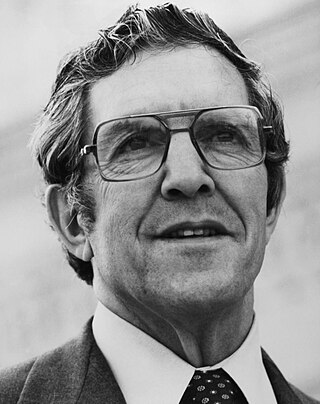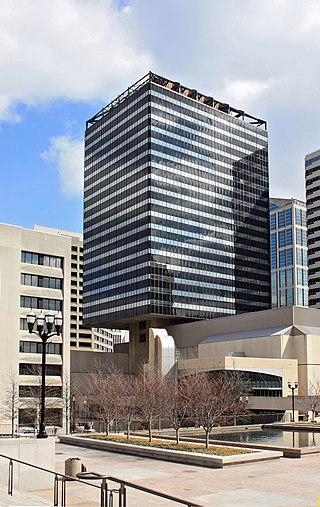Related Research Articles
Public capital is the aggregate body of government-owned assets that are used as a means for productivity. Such assets span a wide range including: large components such as highways, airports, roads, transit systems, and railways; local, municipal components such as public education, public hospitals, police and fire protection, prisons, and courts; and critical components including water and sewer systems, public electric and gas utilities, and telecommunications. Often, public capital is defined as government outlay, in terms of money, and as physical stock, in terms of infrastructure.

Byron Leslie Dorgan is an American author, businessman and former politician who served as a United States Representative (1981–1992) and United States Senator (1992–2011) from North Dakota. He is a member of the Democratic Party.

Graciela "Grace" Napolitano is an American Democratic Party politician who has represented California's San Gabriel Valley and other parts of Los Angeles County in the United States House of Representatives since 1999. Her district is currently numbered California's 31st district. She previously served in the California State Assembly and the Norwalk City Council. At the age of 87, Napolitano is the oldest sitting member in the House of Representatives.

The United States Senate Committee on Environment and Public Works is responsible for legislation and oversight of the natural and built environment and for studying matters concerning environmental protection and resource conservation and utilitization.
Internal improvements is the term used historically in the United States for public works from the end of the American Revolution through much of the 19th century, mainly for the creation of a transportation infrastructure: roads, turnpikes, canals, harbors and navigation improvements. This older term carries the connotation of a political movement that called for the exercise of public spirit as well as the search for immediate economic gain. Improving the country's natural advantages by developments in transportation was, in the eyes of George Washington and many others, a duty incumbent both on governments and on individual citizens.
The following list outlines the structure of the federal government of Canada, the collective set of federal institutions which can be grouped into the legislative, executive, and judicial branches. In turn, these are further divided into departments, agencies, and other organizations which support the day-to-day function of the Canadian state.

The U.S. House Committee on Transportation and Infrastructure is a standing committee of the United States House of Representatives.

Candice Sue Miller is an American politician serving as the Public Works Commissioner of Macomb County, Michigan since 2017. A member of the Republican Party, Miller previously served as the U.S. representative for Michigan's 10th congressional district from 2003 to 2017, the Michigan Secretary of State from 1995 to 2003, and the Macomb County Treasurer from 1993 to 1995. She also served as the Harrison Township Supervisor. She was inducted into the Michigan Women's Hall of Fame in 2015.

Ellis James Abdnor was an American politician who served as a member of the United States Senate from South Dakota. He was also the 15th Administrator of the Small Business Administration under presidents Ronald Reagan and George H. W. Bush.

The Ministry of Land, Infrastructure, Transport and Tourism, abbreviated MLIT, is a ministry of the Japanese government. It is responsible for one-third of all the laws and orders in Japan, and is the largest Japanese ministry in terms of employees, as well as the second-largest executive agency of the Japanese government after the Ministry of Defense. The ministry oversees four external agencies including the Japan Coast Guard, the Japan Meteorological Agency and the Japan Tourism Agency.

The Federal Highway Administration (FHWA) is a division of the United States Department of Transportation that specializes in highway transportation. The agency's major activities are grouped into two programs, the Federal-aid Highway Program and the Federal Lands Highway Program. Its role had previously been performed by the Office of Road Inquiry, Office of Public Roads and the Bureau of Public Roads.

The Tennessee Department of Transportation (TDOT) is the department of transportation for the State of Tennessee, with multimodal responsibilities in roadways, aviation, public transit, waterways, and railroads. It was established in 1915 as the Tennessee Department of Highways and Public Works, and renamed the Tennessee Department of Transportation in 1972. The core agency mission of TDOT is to provide a safe and reliable transportation system for people, goods, and services that supports economic prosperity in Tennessee. Since 1998, TDOT has been ranked amongst the top five in the nation for quality highway infrastructure. It is primarily headquartered in downtown Nashville and operates four regional offices in Chattanooga, Jackson, Knoxville, and Nashville.
The U.S. Senate Environment and Public Works Subcommittee on Subcommittee on Transportation Safety, Infrastructure Security, and Water Quality was one of six subcommittees of the U.S. Senate Committee on Environment and Public Works.
The Subcommittee on Water Resources and Environment is a subcommittee within the House Transportation and Infrastructure Committee.
The National Association of Regulatory Utility Commissioners (NARUC) is the national association representing the U.S. state public service commissioners who regulate essential utility services, including energy, telecommunications, and water. Founded in 1889, the Association is a resource for its members and the regulatory community, providing a venue to set and influence public policy, share best practices, and foster solutions to improve regulation.
The United States House Committee on Public Works was a U.S. House committee, established in 1947 by the Legislative Reorganization Act of 1946, that had jurisdiction over infrastructure within the United States. It was dissolved in 1968 and superseded by the Committee on Transportation and Infrastructure.
The Alliance for Water Efficiency is a stakeholder-based 501(c)(3) nonprofit organization dedicated to the efficient and sustainable use of water. The organization serves as a North American advocate for water-efficient products and programs, and provides information and assistance on water conservation efforts. The organization's activities include advocacy, research, and training. The organization received early support from the U.S. Environmental Protection Agency.

The Infrastructure Investment and Jobs Act (IIJA), most commonly known as the Bipartisan Infrastructure Law (BIL), is a United States federal statute enacted by the 117th United States Congress and signed into law by President Joe Biden on November 15, 2021. It was originally introduced in the House as the INVEST in America Act, and was commonly known as the Bipartisan Infrastructure Bill before it was signed into law.
References
- ↑ Bernie Sanders is an Independent, but caucuses with Democrats on the committee.